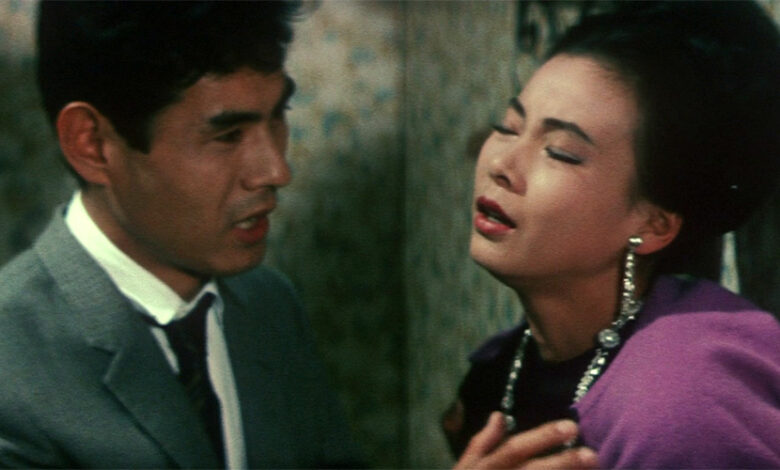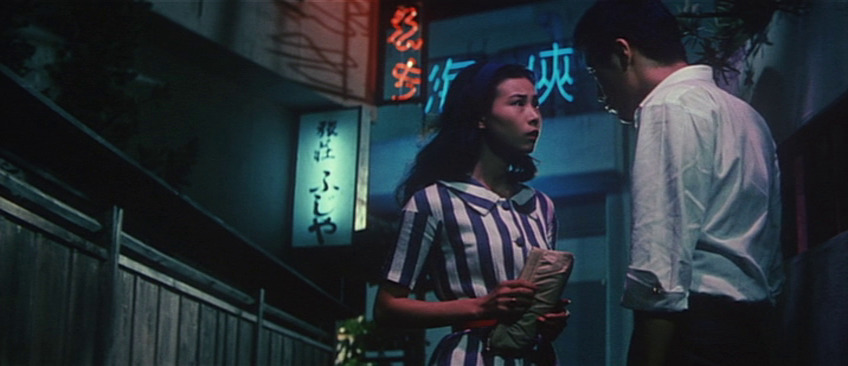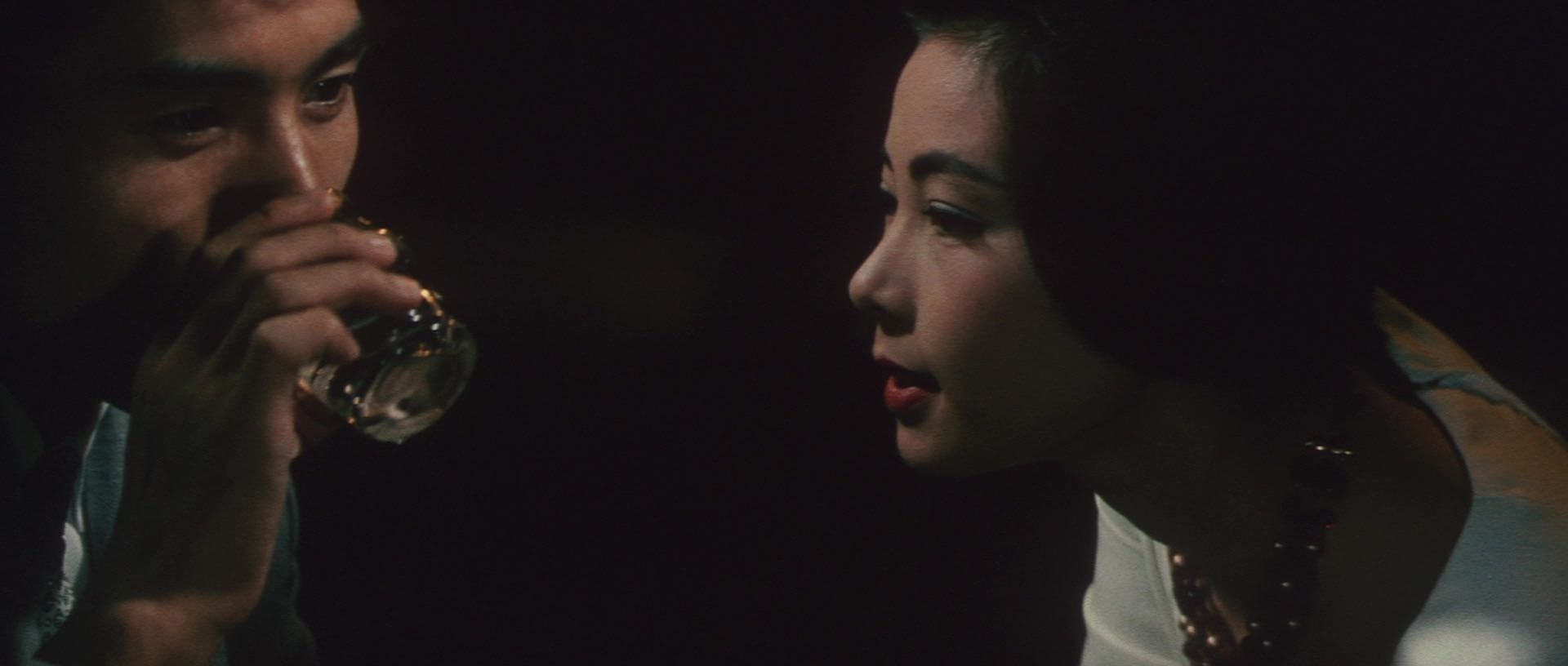The Shape of Night (1964): “I sold my body—but my heart was never for sale…”

The Illusion of Love. The Price of Survival.
In a Tokyo cloaked in night fog and neon, The Shape of Night unfolds like a bruise under silk. This is not a story of ghosts—it’s a story of living women haunted by love.
Yoshie is a factory worker by day. But at night, she becomes a bar hostess, a woman wrapped in lies and perfume, selling smiles she doesn’t mean. When she falls for Eiji, a small-time thug with eyes like secrets, she thinks she’s found escape.
But instead of wings, she gets chains.

Seduction, Control, and the Gentle Violence of Love
What starts as a breathless romance quickly mutates. Eiji isn’t her savior—he’s her handler. Sweet nothings turn into cruel requests. Soon, Yoshie is selling her body to pay his debts, floating through hotel rooms like a ghost in her own life.
“I sold my body—but my heart was never for sale,” she says, eyes full of mascara and despair. But the truth is cruel: even her heart is no longer hers.
This isn’t just melodrama—it’s erotic captivity. Every frame drips with quiet shame, twisted loyalty, and desperate longing. The film doesn’t shout. It seduces you into horror, softly.
A Woman’s Descent, Beautifully Framed
Noboru Nakamura films Yoshie like she’s always behind glass—seen, desired, but never touched for who she is. The streets shimmer with reflections, but no direction. She is trapped in love’s illusion, and her punishment is to know it too late.
The film’s sensuality lies not in bare skin, but in emotional nakedness. In the way she hesitates at doors. In the way her voice breaks when she says, “I’m fine.”
In the way her silence screams.

Final Thoughts
The Shape of Night (1964) is a bruised, luminous masterpiece. It isn’t about ghosts. It’s about the kind of love that hollows you out, strips you bare, and leaves you still begging for more. A love that doesn’t need chains—just guilt and longing.
This is not a ghost story.
This is worse.





